Tubal ligation, often called “having your tubes tied,” is a common method of permanent contraception for women.
While it is highly effective in preventing pregnancy, there is still a slight chance of pregnancy occurring, and in some cases, it can be an ectopic pregnancy. Ectopic pregnancies are rare but can be life-threatening if not diagnosed and treated promptly.
You are in the right place to explore ectopic pregnancy, a topic that can be puzzling, especially if you have had a tubal ligation.
Early detection and proper treatment can make all the difference when it comes to ectopic pregnancy after tubal ligation.
To discover the expert care of renowned IVF doctors in this field, you will find solace in the capable hands of Dr. Hrishikesh Pai at Bloom IVF Centre. As one of the best IVF doctors in India, he combines expertise and compassion to support you through this challenging journey. His knowledge and experience are your greatest assets when navigating the complexities of ectopic pregnancy after tubal ligation.
In this blog post, we will explore what ectopic pregnancy after tubal ligation is, its symptoms, treatment options and preventive measures.
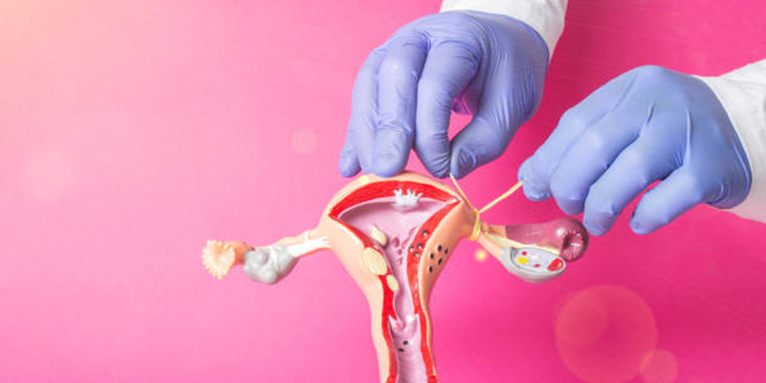
Understanding Ectopic Pregnancy and Tubal Ligation
What is Ectopic Pregnancy?
An ectopic pregnancy is a rare and potentially life-threatening condition in which a fertilized egg attaches and starts growing in a location outside the uterus, most commonly in the fallopian tube. In a healthy pregnancy, the fertilized egg makes its way through the fallopian tube and settles in the uterus for proper development.
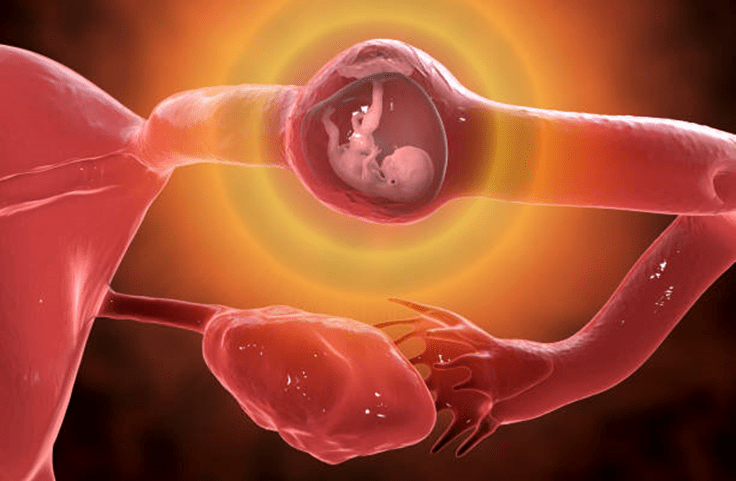
However, in the case of an ectopic pregnancy, the embryo doesn’t reach the uterus and instead implants and begins to grow in locations like the fallopian tube, ovary, abdomen, or cervix. Unfortunately, ectopic pregnancies cannot progress to full-term pregnancies and carry significant health risks for pregnant women if not promptly addressed.
Is Ectopic Pregnancy Possible After Tubal Ligation?
Ectopic pregnancy after tubal ligation, commonly known as tube tied pregnancy, is a rare but potentially severe occurrence. Tubal ligation, or tubectomy, is a surgical procedure that blocks or cuts the fallopian tubes to prevent pregnancy. While it is a highly effective contraception or sterilization method, it is not infallible.
In some extremely rare cases, the fallopian tubes may rejoin or develop small openings, allowing a fertilized egg to enter the tube. When this happens, the fertilized egg can become trapped and develop in the tube, leading to an ectopic pregnancy.
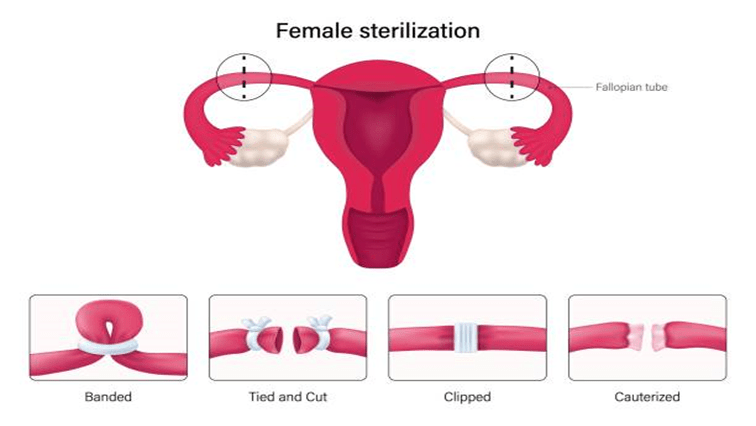
It is essential for anyone who has had a tubal ligation to be aware of the chances of ectopic pregnancy after tubal ligation. They should seek medical attention if they experience symptoms of an ectopic pregnancy.
Signs of Ectopic Pregnancy After Tubal Ligation
Recognizing the signs of pregnancy after tubal ligation is crucial for early diagnosis and treatment. Some common symptoms include:
- Abdominal Pain: Persistent and often severe pain, usually on one side of the lower abdomen.
- Vaginal Bleeding: Light or heavy bleeding that may accompany abdominal pain.
- Shoulder Pain: Unexplained shoulder pain may occur due to internal bleeding from the ectopic pregnancy.
- Weakness and Dizziness: Fainting, weakness, and dizziness can result from internal bleeding and should be taken seriously.
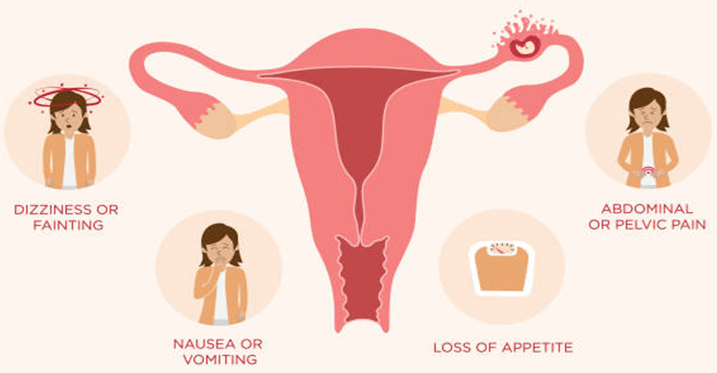
If you experience any of these symptoms, it is crucial to seek immediate medical attention, as early intervention is essential in ectopic pregnancies.
How Common is Ectopic Pregnancy After Tubal Ligation?
Ectopic pregnancy after tubal ligation is a relatively rare occurrence, but it can happen. The exact prevalence of ectopic pregnancies after tubal ligation can vary based on several factors. These factors include the specific method of tubal ligation used, the skill of the surgeon, and individual patient characteristics.
Providing precise statistics on ectopic pregnancies after tubal ligation is challenging because the risk varies from case to case. Generally, the risk is relatively low, with estimates ranging from less than 1% to around 2% or slightly higher.
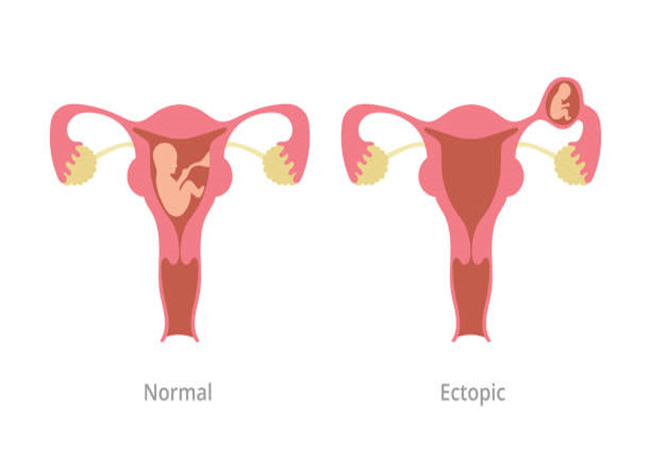
However, the risk remains present, and women who have undergone tubal ligation should seek prompt medical help if they experience ectopic pregnancy symptoms. Early diagnosis and treatment are essential for a successful outcome and preserving the woman’s health.
Are you struggling with tubal blockage and looking for effective treatment? Please schedule a consultation with our experts to explore advanced tubal blockage treatment in India at Bloom IVF Centre.
Treatment for Ectopic Pregnancy After Tubal Ligation
Early diagnosis and treatment are crucial if you experience an ectopic pregnancy after tubectomy. Dr. Hrishikesh Pai and his team at Bloom IVF, one of the best IVF centre in India, are well-equipped to manage such situations. Dr. Pai can discuss the treatment options available, tailoring them to your specific needs and the severity of the ectopic pregnancy. Your individual circumstances will guide the treatment approach.
1. Medical Management:
If an ectopic pregnancy after sterilization is detected before the fallopian tube has ruptured, it may be treated with medication, such as methotrexate. Methotrexate is a drug that can stop the pregnancy from progressing by dissolving the pregnancy tissue. Regular monitoring is essential to ensure the treatment is successful.
2. Surgical Intervention:
In cases where the ectopic pregnancy has advanced or if there is a risk of rupture, surgical intervention becomes necessary. There are two main surgical approaches:
· Laparoscopy: This minimally invasive surgery involves making small incisions in the abdominal area to access the ectopic pregnancy and remove it. It is less invasive, requires a shorter recovery time, and leaves more minor scars.
· Laparotomy: In more severe cases, an open surgery called laparotomy may be required, involving a larger incision. This method is used when the fallopian tube is severely damaged or ruptured.
3. Future Fertility Consideration:
Depending on the extent of damage and the treatment received, individuals can have a healthy pregnancy in the future if desired. However, the affected fallopian tube may be scarred or damaged, potentially affecting fertility.
Consult a healthcare provider to discuss the chances of getting pregnant after a tubal ligation and fertility options for pregnancy after fallopian tube removal or damage.
Are you willing to get pregnant even after tubal ligation? Rest assured, IVF treatment in India at Bloom IVF Centre can be your pathway to parenthood. Explore your options today.
Prevention
The most effective ways to prevent ectopic pregnancy after tubal ligation include:
1. Ensure Proper Tubal Ligation: The primary prevention is to ensure that your tubal ligation is performed correctly and effectively. Follow up with your healthcare provider to confirm the success of the procedure.
2. Stay Informed: Knowledge is your best ally. If you have had a tubal ligation and experience symptoms like abdominal pain or unusual bleeding, be aware of the possibility of an ectopic pregnancy. Seek medical attention promptly if you suspect any issues.
3. Regular Health Checkups: Regular gynecological checkups are crucial to monitor your reproductive health and identify potential problems early. This can include confirming the status of your fallopian tubes after tubal ligation.
4. Consider Alternative Contraception: If you are concerned about the effectiveness of tubal ligation, discuss alternative contraceptive methods with your healthcare provider. There are various options available to suit your needs and preferences.
Conclusion
While ectopic pregnancy after tubal ligation is rare, it is not impossible. Prompt diagnosis and appropriate treatment are essential for ectopic pregnancy after tubal ligation. Being proactive about your reproductive health and staying informed can help in early detection and better management.
If you suspect an ectopic pregnancy or have concerns about your reproductive health, don’t hesitate to ask for professional assistance. Your health and well-being are paramount, and experts like Dr. Hrishikesh Pai, one of the best IVF doctors in Mumbai, India, are here to support you through every step of your journey.
FAQs:
Q1: What are the 3 signs of an ectopic pregnancy?
A1: The three early signs of pregnancy with tubes tied are abdominal pain, vaginal bleeding, and shoulder pain. Contact a healthcare professional immediately if you experience any of these symptoms after a tubal ligation.
Q2: Can you get pregnant after having your tubes tied through tubal ligation?
A2: While tubal ligation is highly effective, it is not 100% foolproof. Rarely, pregnancies can occur due to tubal ligation failure or reversal.
Q3: How common is ectopic pregnancy after tubal ligation?
A3: Ectopic pregnancies after tubal ligation are rare, with a likelihood of around 1% to 2%. However, it is essential to be aware of the possibility.
Q4: Can an ectopic pregnancy be treated without surgery?
A4: In some cases, medication can dissolve the ectopic pregnancy. However, surgical removal may be necessary to prevent severe complications.
Q5: How soon should I seek medical attention if I suspect an ectopic pregnancy?
A5: Seek immediate medical attention if you experience symptoms such as abdominal pain or unusual bleeding.
Reference Links:
